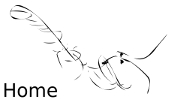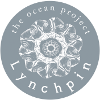Living Data
2015 Impacts:
Align
Introduction/ Archives 2012 2013 2014 2015 2016 2017 2018 2019
Impacts/ Index
Contributors respond
Should artists, like scientists who seek support to make the world a better place, be individually accountable for assessing the impacts of their work?
 As you are aware, in my early twenties I made a decision that has impacted the rest of my life. I decided that the best I could do for myself and as a contribution to the greater good was to improve the lives in a small way, of a small community, that is, those that were around me. My father, who was a socialist and an industrialist pointed that way for me. When his factory became so big that he lost personal contact with the lives of the people who worked with him, (he suggested the number of persons as two hundred), he lost the joy of what he was doing, which was, providing a workplace within his community, for his community. He also struggled to stay in touch with its perspective. His was, what is now termed cynically, a 'social experiment'. Shortly before he died he shocked me by saying "I have failed", as his factory was swallowed up by a gigantic American (now multinational) company. He had made a lot of money for himself and his co-workers, and the community also benefited a great deal. But as soon as he had retired, the whole 'social experiment' collapsed in his absence.
As you are aware, in my early twenties I made a decision that has impacted the rest of my life. I decided that the best I could do for myself and as a contribution to the greater good was to improve the lives in a small way, of a small community, that is, those that were around me. My father, who was a socialist and an industrialist pointed that way for me. When his factory became so big that he lost personal contact with the lives of the people who worked with him, (he suggested the number of persons as two hundred), he lost the joy of what he was doing, which was, providing a workplace within his community, for his community. He also struggled to stay in touch with its perspective. His was, what is now termed cynically, a 'social experiment'. Shortly before he died he shocked me by saying "I have failed", as his factory was swallowed up by a gigantic American (now multinational) company. He had made a lot of money for himself and his co-workers, and the community also benefited a great deal. But as soon as he had retired, the whole 'social experiment' collapsed in his absence.
So I set out with my Life Contribution, this however, with mind to my father's lesson,. Thinking on a small scale (as he had commenced), and with the anticipation that whatever I achieved with my "social experiment" it would be with the understanding that it only existed within my small environment and time. I had in mind that my epitaph should be that I, in the small way within my capacity, would aim to nurture people's souls and bodies through dance experience, and though this influence, it would create a chain of freeing the soul and the body that might then be adapted for the individual, and perhaps the philosophy passed on, (even unwittingly and perhaps not even through the dance itself) by others.
So in commenting about whether I should have to justify and promote what I do for my community in order to gain support, I should say, that my own experience suggests some things are manageable only on a small scale and control their own viability. My father also provided me with yet another wisdom. His enterprise, and he himself, paid whatever taxes they were obliged to, and never went into debt. Profits were ploughed back into the business and the industry grew continuously. He maintained, that the energy spent in the dodging of paying what was supposed to go to the government for the welfare of others and themselves, was greater than the energy spent making more money producing goods and making well-earned profits.
So in my case, and my father's case, how would we assess the impact of what we, in particular do or did as our contribution, in order to receive ... whose approval? And also, where would we find the time and energy to do the sums of how much this impact is worth ? And, lastly, what for.... for money?
Artists and scientists polarise thought and are driven by forces within themselves to investigate and communicate, whether they are motivated by altruism or other. Creating systems of defining where funds should go is a confusing problem and perpetually subjective.
Assessing who or what has approval by a body who decides who or what gains a Grand Tick of Approval, might be a good idea, but it also provides for manipulation, whether intelligent, well-meant or otherwise. Big projects do not necessarily generate more worth. Money does not necessarily produce greater good.
Perhaps support is better allowed to let weeds grow where they will, and not to hot-house chosen flowers.
Not everything can be shoeboxed to fit clever dictums.
Barbara Cuckson, Rozelle School of Visual Arts, Sydney
 Art from my way of thinking/being speaks for and of spirit - I am not sure how one assesses this contribution to society. Sure an artist can work with information and data as part of their intellectual toolbox and it can fire passion but Art has to connect with the heart for me to want to engage. This heartfelt engagement and its results are unique and different for everyone. Sure there are groups that have similar ideas but their aesthetic may be completely different. I go to Art for replenishment of spirit. This helps to rejuvenate me and energises me to participate more fully in the world - for me its an 'energetic transference'. With a world so inundated with problems, crises etc I have come to realise that my art practice needs to engage with positivity and knowledge through direct experience.
Art from my way of thinking/being speaks for and of spirit - I am not sure how one assesses this contribution to society. Sure an artist can work with information and data as part of their intellectual toolbox and it can fire passion but Art has to connect with the heart for me to want to engage. This heartfelt engagement and its results are unique and different for everyone. Sure there are groups that have similar ideas but their aesthetic may be completely different. I go to Art for replenishment of spirit. This helps to rejuvenate me and energises me to participate more fully in the world - for me its an 'energetic transference'. With a world so inundated with problems, crises etc I have come to realise that my art practice needs to engage with positivity and knowledge through direct experience.
I found that doing the plastic/natural synthetic works over the past few years did not engage the public nearly as effectively as the work I make with purely natural materials. Also I have wanted to deepen the 'experience' of the natural world - taking the wonderment from the gallery walls into a new space by providing a space and time ( via the workshops) whereby a real and immersive experience of nature can be had. For me a change of consciousness is necessary for any practical change to happen in regard to climate, environmental issues. To see with new eyes or (even to see at all - as the case may be) is the beginning of changing destructive habits. Ignorance and fear are certainly part of the psychological framework that begets behaviours of destruction. Through my art practice / facilitating workshops (especially with children ) I feel I can make an impact - for instance one yr11 student responded after a 2 day workshop COLLABORATING WITH NATURE that she thought she "probably did suffer from Nature Deficit Disorder and she was no longer scared to touch a leaf" - this is a human tragedy - I believe I am doing little things which are actually very big. Planting seeds.*
As to whether or not my work can be assessed in terms of data ( empirical evidence ) it probably could be done anecdotally - but should an artist be 'required' to do this assessment - i think not. It certainly is interesting but its does not fire my heart. I 'know' what I am doing is impacting - and anyway no-one has ever funded me! haha :)
Shona Wilson, Artist, Australia
I think my response would go something like this and it may be completely irrelevant
1) In complex, interactive and self-modifying systems such as social and ecological systems, it is impossible to accurately predict the long term results of any actions in detail. It may also be impossible to always predict the short term results.
2) It may be hard to tell what the results are, because the systems are complicated as well as complex.
3) The future is always an imagining and not a certainty.
4) At best we can predict likely trends. Such things like increasing greenhouse gases will highly probably increase climate turmoil, but we cannot predict the specific weather (rainfall, average temperature etc) in Sydney in Winter 2030, as a result of these increases.
5) Knowledge or guesswork is not an individual affair, it is shared, dissented from etc. It is a collective wisdom and is likely to involve a variety of views - which may be wrong. It comes out of a way of living.
6) What is considered 'good' is also likely to be both collective and variable.
7) There is no firm basis for ethics, that is not already an ethical position. There will be little agreement on what is good. What counts as evidence of the effects of ethical behavior can always be disputed in an interactive self-modifying complex system, as many of the multitude of possible consequences will have to be ignored. The history of ethics demonstrates these points.
8) Ethics involves argument and dissent. People may not even agree human survival is a moral end.
9) Consequently we cannot be individually responsible in toto. We will be blinded by both our lack of predictive ability, our imagination, our moral guidelines and our way of life. But we probably cannot be guided by others alone, as that avoids responsibility and thought - which are often considered to be ethical.
10) We can be responsible for listening to others help divine the nature of the effects of what we do, and the morality of those effects and make up our own limited minds - which is what you are doing here.
11) Ethical behavior may involve listening to others as ethics is relational, but others may ethically deny this if they want.
12) I would say, that given the 'unimaginable' nature of reality and futures, we act ethically as best we can or 'do the most good we can do', but always be prepared to change our actions should they not work out in that situation, and realize that others may not agree with that good, and we may not be right.
13) Do we sacrifice others to our 'rightness'?
14) Once uncertainty is accepted as a part of reality then it appears that ethical acts may often fail, and it is hard to judge whether they fail or not.
15) If so, then there can be no ethical behavior without the recognition of uncertainty, although others will dispute this
16) There is nothing ethical about persisting if we induce failure - again others may disagree. The history of ethics is a history of persistence in the face of failure.
17) Donating to institutions may not support the work the institutions do. It may for example support flashy offices for highly paid administrators.
18) If you want to give to institutions then you may have an ethical responsibility to find out how the money is likely to be spent, even if you cannot guarantee that spending or its effects.
19) In the end you have to do as best you can living in uncertainty and conflict, responding to the situation as it is now as best you can and observing the results of those responses....
20) This is the nature of ecological living.
Jonathan Marshall, Anthropologist, Australia
Responses to my question, suggest a problem with the question - a false modesty in Doing Good (in any field) as paid work, and that art is something we do for love not money.
Barbara Cuckson's experience validates my sense that around 200 people is an optimal size for an integrated community, such as I see Living Data evolving into. Like Shona Wilson I feel my art work has greater impact through talks and workshops (ideally in the field), than solely through exhibitions in galleries and museums. Like Jonathan Marshall I recognise that social and ecological systems are 'interactive and self-modifying', and that many ways of understanding and expressing are vital for connecting many people.
Since beginning Living Data (in 2011) I recognise and value changes in myself that I attribute to interactions with contributors. I recognise an ongoing interplay between our identities and new insights (new connections) evolving. These interactions inspire me to track changes in understanding that I experience and observe when scientists and artists get together, but are rarely recognised and valued. I suspect this is because the languages we use are very different. Can the changes be quantified and described in ways that non-scientists can understand? Can the changes be subjectively expressed and described in ways that non-artists can understand?
Lisa RobertsVisual artist/interactive author
Living Data program leader/Visiting Fellow, University of Technology Sydney (Science)











